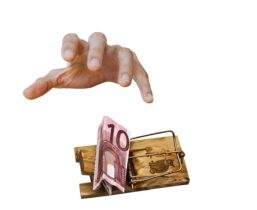A piece of writing advice that has always stuck with me is: ‘Fiction needs a bad guy.’ OK, sometimes the bad ‘guy’ isn’t a person acting with volition but fire, a flood, or maybe a virus, but even the soppiest, most uplifting romance is likely to have a love rival or an Evil Ex somewhere in the picture.
 While writing villains is sometimes a matter of wanting to include some kind of redemption arc, that isn’t mandatory. Nor is it always the case that the baddies are sexier or at least more interesting than the righteous. Sometimes bad people are just bad, and in ways that are not remotely glamorous. Villainy can be utterly banal.
While writing villains is sometimes a matter of wanting to include some kind of redemption arc, that isn’t mandatory. Nor is it always the case that the baddies are sexier or at least more interesting than the righteous. Sometimes bad people are just bad, and in ways that are not remotely glamorous. Villainy can be utterly banal.
That isn’t to say that a villain who is horrible for the sake of horribleness represents effective characterisation, even if you are working in the broadest of broad strokes. People who do awful things usually believe there is some justification for what they are doing. In stories about lust and love, the rival often feels that the fought-over person would genuinely be better off with them than with the protagonist or protagonist’s chosen partner. The meddling friend/parent/employer might be sincere in their belief that this relationship will do the protagonist more harm than good. Even the bigot often justifies bigotry on the grounds that they are protecting their own tribe from the dangers represented by the tribe they have designated the enemy.
Most villainy, in reality, is about seeking advantage, though. Certainly almost any behaviour which seems inexplicably terrible can usually be understood if  you follow the money. Donald Trump, for all his hideous rantings, is fundamentally concerned with money, and acquiring as much of other people’s as possible. Even his obsession with remaining in power is predominantly about money: once out of office, his financial crimes will be open to prosecution.
you follow the money. Donald Trump, for all his hideous rantings, is fundamentally concerned with money, and acquiring as much of other people’s as possible. Even his obsession with remaining in power is predominantly about money: once out of office, his financial crimes will be open to prosecution.
Boris Johnson’s terrible cabinet of losers, thickos and crooks also become more comprehensible when you look at where the money’s going. Brexit was first and foremost a heist: a conspiracy theory cooked up by currency speculators and tax dodgers. Now they, or at least their backers, are using the pandemic as a way of systematically looting the country while everyone’s fighting over masks and grassing up their neighbours.
You may find the concept of fictitious villains whose apparently incomprehensible Fiendish Plans turn out to be straightforward cash grabs insufficiently exciting, of course. The traditional heist doesn’t always lend itself to erotica, but it may well be possible to give it a kinky twist. Sinister machinations that threaten the local fetish club, for instance, might be tracked back to a plain old property developer who wants to replace the building with another block of luxury flats. A dodgy aphrodisiac might be a bog-standard MLM-type scam.
If you’re interested in more writing inspirations, try the Dicewriting book. (OK, it’s at the bottom of the page. More efficient linkable bits of bookshop are coming soon, promise…)

